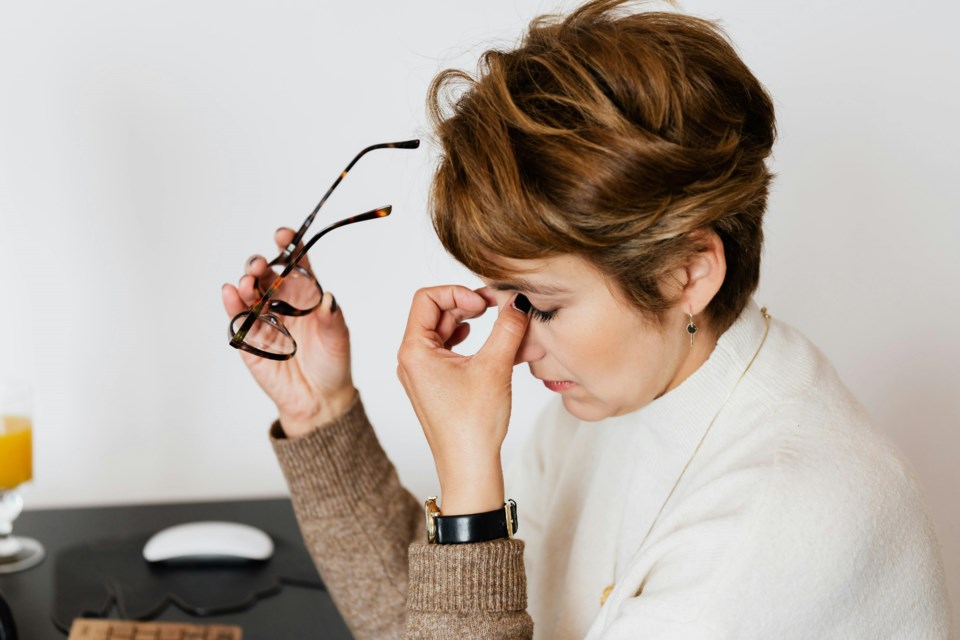
News
August 28, 2025
10 signs you could be low on iron and what to do about it
Fatigue that doesn’t go away with rest may signal something deeper than burnout. Iron deficiency affects millions but often flies under the radar. Here’s how to spot it—and fix it.
**10 Signs You Could Be Low on Iron and What to Do About It**
Are you constantly tired, even after a full night's sleep? Do you find yourself struggling to concentrate or feeling unusually weak? It might be more than just burnout; you could be suffering from iron deficiency, a surprisingly common condition that affects millions worldwide. Often, iron deficiency goes unnoticed because its symptoms can be subtle and easily mistaken for other ailments. But recognizing these telltale signs is the first step toward feeling like yourself again.
Iron is a vital mineral that plays a crucial role in carrying oxygen throughout your body. When your iron levels are low, your body struggles to produce enough hemoglobin, the protein in red blood cells responsible for transporting oxygen. This can lead to a range of unpleasant symptoms.
While fatigue is the most well-known symptom, there are other indicators to watch out for. These include: unexplained weakness, pale skin, shortness of breath, frequent headaches, dizziness or lightheadedness, brittle nails, restless legs syndrome, unusual cravings for non-food items like ice or dirt (a condition called pica), and cold hands and feet. Experiencing just one or two of these symptoms might not necessarily indicate an iron deficiency, but if you're experiencing a combination of several, it's worth investigating.
So, what can you do if you suspect you're low on iron? The first step is to consult with your doctor. They can perform a simple blood test to accurately measure your iron levels and determine the underlying cause of the deficiency.
Once diagnosed, treatment typically involves increasing your iron intake. This can be achieved through dietary changes. Iron-rich foods include red meat, poultry, fish, beans, lentils, spinach, and fortified cereals. Pairing these foods with sources of vitamin C, like citrus fruits or bell peppers, can enhance iron absorption.
In some cases, dietary changes alone may not be enough. Your doctor may recommend iron supplements to help replenish your iron stores more quickly. It’s important to take iron supplements as directed, as they can sometimes cause side effects like constipation or stomach upset. Always talk to your doctor before starting any new supplement regimen.
Don't let iron deficiency hold you back. By being aware of the signs and taking proactive steps, you can regain your energy and improve your overall health and well-being.
Are you constantly tired, even after a full night's sleep? Do you find yourself struggling to concentrate or feeling unusually weak? It might be more than just burnout; you could be suffering from iron deficiency, a surprisingly common condition that affects millions worldwide. Often, iron deficiency goes unnoticed because its symptoms can be subtle and easily mistaken for other ailments. But recognizing these telltale signs is the first step toward feeling like yourself again.
Iron is a vital mineral that plays a crucial role in carrying oxygen throughout your body. When your iron levels are low, your body struggles to produce enough hemoglobin, the protein in red blood cells responsible for transporting oxygen. This can lead to a range of unpleasant symptoms.
While fatigue is the most well-known symptom, there are other indicators to watch out for. These include: unexplained weakness, pale skin, shortness of breath, frequent headaches, dizziness or lightheadedness, brittle nails, restless legs syndrome, unusual cravings for non-food items like ice or dirt (a condition called pica), and cold hands and feet. Experiencing just one or two of these symptoms might not necessarily indicate an iron deficiency, but if you're experiencing a combination of several, it's worth investigating.
So, what can you do if you suspect you're low on iron? The first step is to consult with your doctor. They can perform a simple blood test to accurately measure your iron levels and determine the underlying cause of the deficiency.
Once diagnosed, treatment typically involves increasing your iron intake. This can be achieved through dietary changes. Iron-rich foods include red meat, poultry, fish, beans, lentils, spinach, and fortified cereals. Pairing these foods with sources of vitamin C, like citrus fruits or bell peppers, can enhance iron absorption.
In some cases, dietary changes alone may not be enough. Your doctor may recommend iron supplements to help replenish your iron stores more quickly. It’s important to take iron supplements as directed, as they can sometimes cause side effects like constipation or stomach upset. Always talk to your doctor before starting any new supplement regimen.
Don't let iron deficiency hold you back. By being aware of the signs and taking proactive steps, you can regain your energy and improve your overall health and well-being.
Category:
Politics